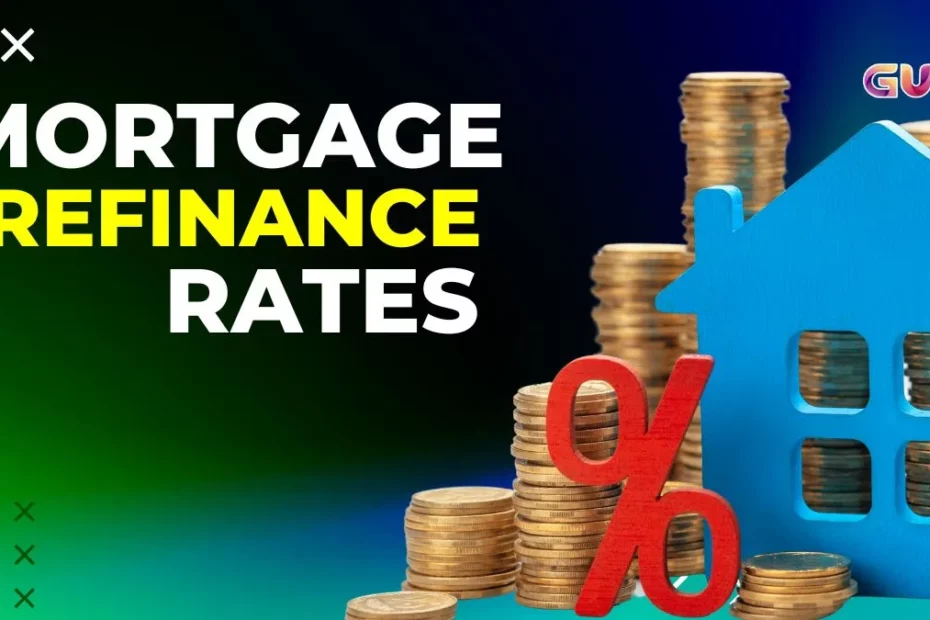Mortgage Rates Today: Mortgage refinance rates nudged higher today, signaling caution for homeowners looking to lock in new terms despite some relief in purchase mortgage rates. As the housing market faces economic crosscurrents, borrowers are watching rates closely to determine whether now is the right time to refinance.
According to the latest data from multiple lenders and aggregators, the average refinance rate for a 30-year fixed mortgage rose to 7.33%, up from 7.18% last week. This modest uptick comes even as Treasury yields rose and market volatility remained high.
Meanwhile, purchase mortgage rates dipped slightly, offering a small window of opportunity for first-time buyers and those looking to move amid a high-inflation environment.
Mortgage Refinance Rates – June 6, 2025
| Loan Type | Avg. Rate | 1-Week Change | Avg. APR |
|---|---|---|---|
| 30-Year Fixed | 7.33% | ▲ +0.15% | 7.37% |
| 20-Year Fixed | 6.83% | ▼ -0.14% | 7.35% |
| 15-Year Fixed | 6.09% | ▲ +0.05% | 6.29% |
| 10-Year Fixed | 5.89% | ▼ -0.18% | 6.28% |
Why Are Refinance Rates Rising?
Mortgage refinance rates are influenced by a mix of economic signals:
Treasury Yields: The 10-year Treasury yield rose to 4.462%, typically a leading indicator for mortgage rate movement.
Federal Reserve Policy: With the Fed holding steady on rates for now, markets remain uncertain about when the next rate cut might come.
Labor Market: Today’s jobs report showed 139,000 new jobs added, suggesting resilience in the labor market—a factor that could delay rate cuts.
“While new buyers are enjoying a slight dip in mortgage rates, refinancers are facing a more complex market,” said a senior mortgage analyst. “Rising long-term yields and inflationary pressure are pushing refinance rates up, even as demand remains steady.”
Is Now a Good Time to Refinance?
It depends on your current mortgage rate and financial goals. Homeowners with older loans above 8% may still benefit from refinancing at today’s levels, but those expecting significant savings might need to wait for further declines.
“Refinancing today requires a sharp eye on the numbers,” experts advise. “You’ll want to calculate your break-even point, factor in closing costs, and be sure the rate is low enough to make the switch worth it.”
Government-Backed Loan Rates
Rates for FHA and VA refinance loans have also seen mixed movement:
| Loan Type | Rate | APR | Change |
|---|---|---|---|
| 30-Year FHA Refinance | 7.52% | 8.56% | ▲ +0.65% |
| 15-Year FHA Refinance | 5.49% | 6.45% | ▼ -0.08% |
| 30-Year VA Refinance | 6.46% | 6.68% | ▼ -0.02% |
| 15-Year VA Refinance | 6.02% | 6.38% | — No change |
These government-backed loans continue to offer attractive options for qualified borrowers, especially veterans and first-time homebuyers.
Outlook for Refinance Rates in 2025
The Mortgage Bankers Association predicts rates will hover around 6.7% through Q3 2025, with a gradual decline to 6.6% by year-end, assuming inflation trends down and the Fed begins easing.
Until then, mortgage refinance shoppers should act strategically, lock rates when favorable, and consult lenders to find the best deal based on their credit profile and financial goals.
While purchase rates show modest improvement, refinance rates remain elevated—a sign that borrowers need to carefully evaluate the timing of their refinance strategy. With economic signals pointing in different directions, the second half of 2025 could bring more clarity for homeowners nationwide.
